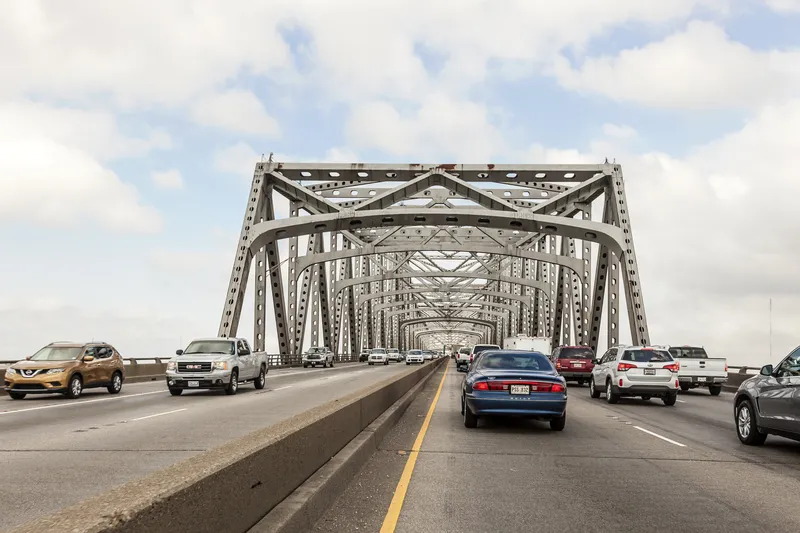The Missouri Highways and Transportation Commission (MHTC) has launched plans to utilise innovation and construction rebuild the state’s oldest interstate highway, Interstate 90. It is to make the highway from Kansas City to St Louis available to private industry, entrepreneurs and innovators as a laboratory for construction of the next generation of highways.
Missouri Department of Transportation (MoDOT) chief engineer Ed Hassinger has appointed a team of MoDOT experts to solicit and evaluate ideas fro
June 22, 2015
Read time: 3 mins
The Missouri Highways and Transportation Commission (MHTC) has launched plans to utilise innovation and construction rebuild the state’s oldest interstate highway, Interstate 90. It is to make the highway from Kansas City to St Louis available to private industry, entrepreneurs and innovators as a laboratory for construction of the next generation of highways.
1773 Missouri Department of Transportation (MoDOT) chief engineer Ed Hassinger has appointed a team of MoDOT experts to solicit and evaluate ideas from the private sector for the ‘Road to Tomorrow’. Those ideas need to not only focus on innovations in traffic engineering, design and construction, but also innovative ways of funding transportation infrastructure. More information is on the MoDOT website (link www.modot.org/road2tomorrow)
“Missouri has always been a hub for transportation technology and innovation – and our highways should be no exception,” said Governor Jay Nixon. “As we continue to work to identify a solution to our transportation funding needs, I appreciate the Missouri Department of Transportation for taking a pro-active approach and embracing new technologies that will pave the way toward a brighter future.”
President Eisenhower signed the legislation that authorised the US interstate highway system in 1956 and shortly afterwards, Missouri became the first state to award an interstate construction contract for a section of Interstate 44 in Laclede County and several months later became the first state to begin construction of an interstate when work began on I-70 in St. Charles.
“It’s only appropriate that the re-birth of the nation’s interstate system begin at its birthplace,” MHTC chairman Stephen R. Miller said. “Missouri has always been at the heart of highway transportation – not only because the state’s geographic location puts it at the nation’s core, but also because of the role it’s played in the realisation of Eisenhower’s dream.”
He added that Americans are just now getting a glimpse of the new technologies that could serve as the basis for future highways: GPS systems, autonomous vehicles, alternative fuels, new construction materials, etc., saying, “we must stay firmly rooted in the realities of the moment – and that is that we have insufficient funding to preserve our current system. ‘Road to Tomorrow’ may be years or decades away. In the meantime, a modest increase in fuel taxes is the most viable way to protect our current transportation assets.”
“Missouri has always been a hub for transportation technology and innovation – and our highways should be no exception,” said Governor Jay Nixon. “As we continue to work to identify a solution to our transportation funding needs, I appreciate the Missouri Department of Transportation for taking a pro-active approach and embracing new technologies that will pave the way toward a brighter future.”
President Eisenhower signed the legislation that authorised the US interstate highway system in 1956 and shortly afterwards, Missouri became the first state to award an interstate construction contract for a section of Interstate 44 in Laclede County and several months later became the first state to begin construction of an interstate when work began on I-70 in St. Charles.
“It’s only appropriate that the re-birth of the nation’s interstate system begin at its birthplace,” MHTC chairman Stephen R. Miller said. “Missouri has always been at the heart of highway transportation – not only because the state’s geographic location puts it at the nation’s core, but also because of the role it’s played in the realisation of Eisenhower’s dream.”
He added that Americans are just now getting a glimpse of the new technologies that could serve as the basis for future highways: GPS systems, autonomous vehicles, alternative fuels, new construction materials, etc., saying, “we must stay firmly rooted in the realities of the moment – and that is that we have insufficient funding to preserve our current system. ‘Road to Tomorrow’ may be years or decades away. In the meantime, a modest increase in fuel taxes is the most viable way to protect our current transportation assets.”








